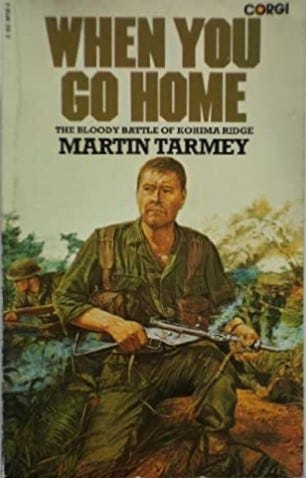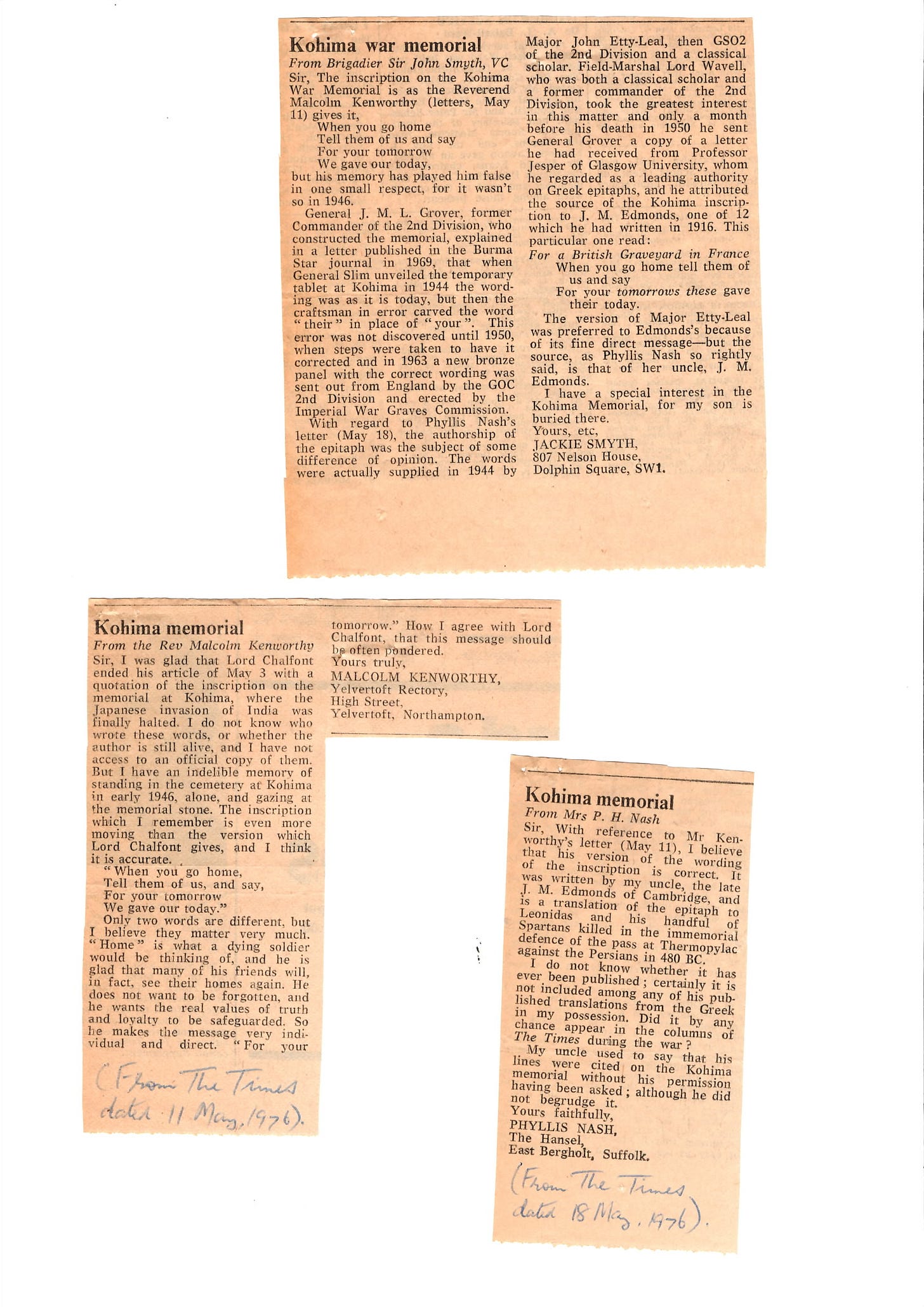You don’t have to go far to hear the wonderful Kohima epitaph. I’ve stood in front of the 2nd Division memorial just above the Traffic Control Point (TCP) at Kohima on countless occasions, and marvelled at those words.
Some time later this year the Imperial War Museum will republish the late Martin Tarmey’s fabulous ‘When You Go Home’: I’ll give a talk on it, and him, via the Kohima Educational Trust when it is published. Tarmey was a young officer in the Reconnaissance Corps, and fought through the battle. His book is a fictionalised account of the fighting, but clearly based on his own experiences. In my view it’s a masterpiece in soldiers’ writing. I’m very excited that it’s finally being republished.
Martin was 22 when he was awarded an MC for his ‘coolness and bravery while under heavy fire’ in the Burma Campaign.
A review at the time of publication (1975) describes the ‘living hell’ of the fighting at Kohima:
While we await the republication, I thought I’d show you a little bit of newspaper correspondence from 1976, which makes very clear the origin of the epitaph itself. The cuttings were collected by James Barrett MC and sent to me by his daughter Joanna. Hardly surprising that the correspondence was initiated by our old friend Brigadier Sir John Smyth VC…






Mike Hoare, who fought communism in the former Belgian Congo during the 1960s, was wounded serving in 2nd Recce. The unit originated in Lancashire as 6th Loyals (North Lancashire). The fighting on Pulie Badze mountain, above Kohima, during the heavy rains was physically very demanding, and hundreds of tribal Naga civilians were employed to carry supplies up and casualties down the hill.
Very moving on a Thursday morning. I have not read much SWW fiction but I will be getting this book.